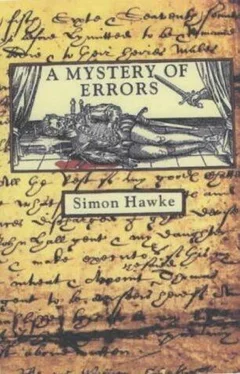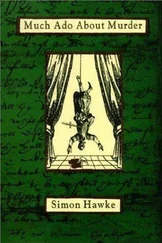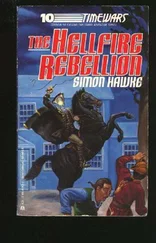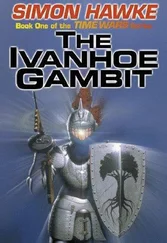Simon Hawke - A Mystery Of Errors
Здесь есть возможность читать онлайн «Simon Hawke - A Mystery Of Errors» весь текст электронной книги совершенно бесплатно (целиком полную версию без сокращений). В некоторых случаях можно слушать аудио, скачать через торрент в формате fb2 и присутствует краткое содержание. Жанр: Исторический детектив, на английском языке. Описание произведения, (предисловие) а так же отзывы посетителей доступны на портале библиотеки ЛибКат.
- Название:A Mystery Of Errors
- Автор:
- Жанр:
- Год:неизвестен
- ISBN:нет данных
- Рейтинг книги:3 / 5. Голосов: 1
-
Избранное:Добавить в избранное
- Отзывы:
-
Ваша оценка:
- 60
- 1
- 2
- 3
- 4
- 5
A Mystery Of Errors: краткое содержание, описание и аннотация
Предлагаем к чтению аннотацию, описание, краткое содержание или предисловие (зависит от того, что написал сам автор книги «A Mystery Of Errors»). Если вы не нашли необходимую информацию о книге — напишите в комментариях, мы постараемся отыскать её.
A Mystery Of Errors — читать онлайн бесплатно полную книгу (весь текст) целиком
Ниже представлен текст книги, разбитый по страницам. Система сохранения места последней прочитанной страницы, позволяет с удобством читать онлайн бесплатно книгу «A Mystery Of Errors», без необходимости каждый раз заново искать на чём Вы остановились. Поставьте закладку, и сможете в любой момент перейти на страницу, на которой закончили чтение.
Интервал:
Закладка:
The Queen’s Players, featuring the famous Dick Tarleton, had put on a performance in the courtyard of The Goose and Gander. With the open sky above them, they had erected a small stage in the courtyard of the inn, with several screens behind the stage to make a tiring-room where costumes could be changed, and the entire village had attended their performance. Smythe had never seen anything like it. Somehow, that little group of men had managed to turn a small wooden platform supported by several barrels into another world, another place and time. Tarleton and Will Kemp, the two comedians of the troupe, had everyone helpless with laughter at their jigs and capers and from that moment on, Smythe had wanted nothing more than to be among those men and on that stage himself.
His father disapproved, of course. A life as a player was totally unsuitable and utterly out of the question. While working at his uncle’s forge was no more a fit occupation for a gentleman, his father had believed that it could do a lad no harm to learn a bit of industry and develop an eye for iron, steel, and horseflesh. Those would certainly be useful things to know for a man of standing and position. But acting? The very mention of it had driven his father to apoplexy. Actors were nothing but immoral vagabonds whose careers were built on lies and fancy. He had stormed and thundered and threatened to disown him. The dream of acting, it had seemed, was destined to wither on the vine. Instead, it was his father’s dream which had died before ever bearing fruit.
Symington Smythe’s great, ambitious dream had been the — achievement of a peerage. To this end, he had worked ceaselessly for most of his adult life. He had inherited and married well, but it was not enough to be a man of means and property. That property needed to be increased and increase in the means, in turn, begat more property. An improved estate could bring improved position and, these days, an improved position could bring a state of knighthood.
In the old days, titled blood had needed to be blue and preferably spilt in the name of king and country over several generations. But though the glory days of armor had, except for tournaments of sport, largely passed away, arms were still in very great demand. It was not unheard of for a prosperous merchant or a privateer to attain a peerage through some service to the Crown, or someone close to it. And becoming a gentleman with a claim to an established lineage was a necessary first step. Nowadays, every successful glover, stationer, and vintner who fancied himself a gentleman applied to Derby House for an escutcheon with which to grace his mantelpiece.
Even a man with blood less venous than venial could petition the offices of arms for the design of a device he could engrave on silver bowls to grace his dining room or have glazed into the leaded windows to lend an air of stature to his home. He could have a local glover embroider the arms upon his gauntlets and commission a goldsmith to craft a handsome seal ring to be worn upon the thumb as a sigil of importance. And if the fees were promptly paid and embellished with a few gratuities, then the heralds’ inquiries into oft exaggerated claims to bear the port and charge and countenance of rank were not particularly scrupulous.
Thus, Symington Smythe II had applied for and received a coat of arms, so elaborate as to be positively tasteless, with engrailed crosses, lions passant, sable this and purpure that and argent every which way, which device he had then proceeded to emblazon on everything from the arched entryway over the front doorway of their country house to the handkerchiefs he had elaborately embroidered, apparently not seeing the irony of blowing his nose into his prized, dearly bought escutcheon.
A coat of arms, however, did not yet a knighthood make, so much more had needed to be done to curry influence and favor and prove merit. And in his rashly injudicious pursuit of that vainglorious ambition, Symington Smythe II had thoroughly bankrupted himself. In the process, he had denied his son any inheritance at all save for his name, to which he could append a lofty “III,” if he so wished.
He did not wish. The appellation was, in his consideration, a bit too grand for a young man whose menial skills so far surpassed his means. Symington Smythe alone was cumbersome enough for a man with an uncertain future. He could, in all likelihood, secure an apprenticeship with some smith or farrier in London, for he had some good experience of those crafts, thanks to his uncle, who had taught him well. Thomas Smythe had not, by virtue of his later birth, inherited any part of the family estate, save for what his brother chose to settle on him. However, if he bore any resentment for his older brother’s preferment, then he had never shown it.
As loathe as his would-be aristocratic brother was to get his hands dirty, Thomas Smythe was never quite so happy as when he labored at his forge. He loved working with his hands, and while he was kept busy as a smith and farrier, on occasion he would pursue his true love, which was the forging of a blade. He alone had lent support to his nephew’s dream of acting, even if he had not entirely understood it. It seemed to him much too intangible and frivolous a way to make a living. Nevertheless, he had not opposed the notion.
“Your father has ruined your future in pursuit of his ambition,” Uncle Tom had said, “so it would only serve him right if you lent rancor to his future in pursuit of yours. His threats to disown you have no weight now, for he has squandered his estate. He will count himself lucky to avoid the debtor’s prison. He is my brother, and I will help to what extent I can, even if he is a thoroughgoing ass. But as for you, if what you truly want to do is act, lad, why then go and be an actor. Odds blood, life is short enough. Go live it as you like it.”
It seemed like sound advice, so Smythe had taken it. And it was all that he had taken, for he’d left home with nothing more than the clothing on his back, a wooden staff, and a plain-handled, serviceable, if unpolished bodkin that his Uncle Tom had made and given to him as a present on his fifteenth birthday. The thieves who had accosted him had not even deemed the sturdy blade worth stealing. But though there were prettier daggers, to be sure, there were none so strong or sharp. And it was the only thing Smythe had that truly meant anything to him. He would have defended that ugly dagger to the death.
His mother had died shortly after he was born, so he had never known her, and though he had spent his childhood years in the same house with his father and his stepmother, he had never truly known them, either. He had known his wet nurse, Nan, much better. While still a boy, he had been sent to his Uncle Tom’s to be raised and educated and taught the value of hard work while his father chased his lofty dreams. But he felt that it was not as if his father and stepmother were alone or even necessarily at fault for being so distant. Smythe knew that it was not unusual for children to be sent away to live with other families. Children often did not survive and convention held that if parents became overly attached, then the grief over a dead child would be too difficult to bear. In his case, there had been no siblings, either alive or dead, because his father’s second marriage had not been blessed with offspring. He would have been the heir, therefore, had his father left him something to inherit. Now there was nothing to hold him to the life he’d lived before, nothing to stop him from seeking the life that he so earnestly desired. The question was, how to make the transition from the one life to the other?
He was not even sure how one went about trying to join an acting company. Was there a waiting list for openings? He imagined there probably had to be, for he knew that most companies had only a few regular players who were shareholders and the rest were hired men who might be taken on for no more than one production, or even one performance. There would likely be apprentices that the senior actors would take into their homes and train in stagecraft, just as was done with apprentices in every craft and guild, but these would be young boys who would play the female roles in the productions until their voices changed or until they grew too big. And he was already too old for such consideration, to say nothing of his being much too large of frame to play a woman, and too deep of voice.
Читать дальшеИнтервал:
Закладка:
Похожие книги на «A Mystery Of Errors»
Представляем Вашему вниманию похожие книги на «A Mystery Of Errors» списком для выбора. Мы отобрали схожую по названию и смыслу литературу в надежде предоставить читателям больше вариантов отыскать новые, интересные, ещё непрочитанные произведения.
Обсуждение, отзывы о книге «A Mystery Of Errors» и просто собственные мнения читателей. Оставьте ваши комментарии, напишите, что Вы думаете о произведении, его смысле или главных героях. Укажите что конкретно понравилось, а что нет, и почему Вы так считаете.












